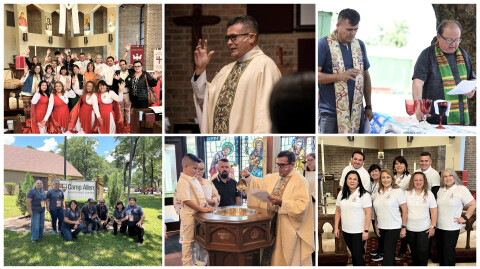TLDR: I am thinking of death during the long wake between Good Friday and the Easter Vigil. Please read below if you are interested in some of my thoughts.
There are dozens of poems by the name “Azrael.” This Angel of Death of antiquity is said to transport the souls of the dead to their final destination after death. In Islam, Azrael carries a scrolls with information concerning the ultimate fate of mortals. In Judaism (although the name Azrael never appears) the Angel of Death also carries a scroll. In popular Christianity it is often pictured as a tall figure with long wings, wearing a dark brown, hooded robe, and carrying a sickle (harvesting tool.) It is implied that it is Azrael’s job to harvest the souls of humans and to bring them to their final end. In Roman Catholic folklore Azrael often causes great fear, similar to the great ripper of American folklore, but when you pay attention to artistic renditions of this figure, you always notice that Azrael has incredibly sad eyes. He is a compassionate angel. In fact, some ancient Jewish writings tell us the name Azrael means, “God helps.”
I am thinking of death during this long wake between Good Friday and the Easter Vigil. I have reread two great poems by Amado Nervo, a Mexican poet who lived from 1870-1919. In the poem “In Peace,” Nervo has a conversation with life, “Very close to my sunset, I bless you, life, because you never gave me failed hope, nor unfair work, nor undeserved punishment; because I see at the end of my winding path that I was the architect of my own destiny; that if I extracted honey or gall from things, It was because I put gall or tasty honey in them: When I planted rose bushes, I always harvested roses... True, winter will follow my blooms: But you didn't tell me that May was eternal! I undoubtedly found the nights of my sorrows long; but you didn't just promise me good nights; besides, I had some holy and serene nights... I loved, I was loved, the sun caressed my face. Life, you owe me nothing! Life, we are at peace!”[1]
I love that poem, but it is Nervo’s Azrael that has occupied much of my time. The following is my own translation, but you can find other versions online.
In a few hours we will celebrate the resurrection of the Son of God, the only medicine for sick hope and sunsetting faith. Nervo’s character in this poem shows a consuming sadness that is unbearable to imagine. Spiritual emptiness and physical loneliness have resulted in a deficit of faith and hope. Yet, “the poem ends with a series of rhetorical questions, expressing uncertainty about the nature of death and the possibility of finding solace or meaning in the unknown.”[2]
I love the poem’s last word, “PERHAPS.” There is hope in this amazing word, which I have loved for almost ten years. I once read a poem by the Austrian poet Rainer Maria Rilke, which wonders if “Perhaps all the dragons in our lives are princesses who are only waiting to see us act, just once, with beauty and courage. Perhaps everything that frightens us is, in its deepest essence, something helpless that wants our love.” Novelist John Green in Looking for Alaska tells us that the last words of poet Francois Rabelais were, “I go to seek a Great Perhaps.” The great miracle of Easter robs “Perhaps” of its uncertainty, but it doesn’t completely destroy its mystery. There is much we don’t know about our ultimate end, but we know enough to fill us with joy this great evening. We will not stand alone at the edge of the universe when we die. We have a home in God and we will return to our Creator when we die. One day, we will seek our own perhaps, and we will rest at peace in the certainty of God’s immeasurable love.
Rejoice this night, “When all who believe in Christ, are delivered from the gloom of sin, and are restored to grace and holiness of life. This is the night when Christ broke the bonds of death and hell and rose victorious from the grave. How wonderful and beyond our knowing, O God, is your mercy and loving kindness to us, that to redeem a slave, you gave a Son.”[3]
May you and your family have a joyful Easter week. Blessings,
Fr. Roman+
[1] This is my own translation, but I believe it is more faithful to the text than what you find at other sites like https://www.poetrynook.com/poem/peace-2
[2] https://allpoetry.com/poem/8532589-Azrael-by-Amado-Ruiz-de-Nervo
[3] Episcopal Exsultet, https://www.episcopaldeacons.org/uploads/2/6/7/3/26739998/exsultet_roman_.pdf





